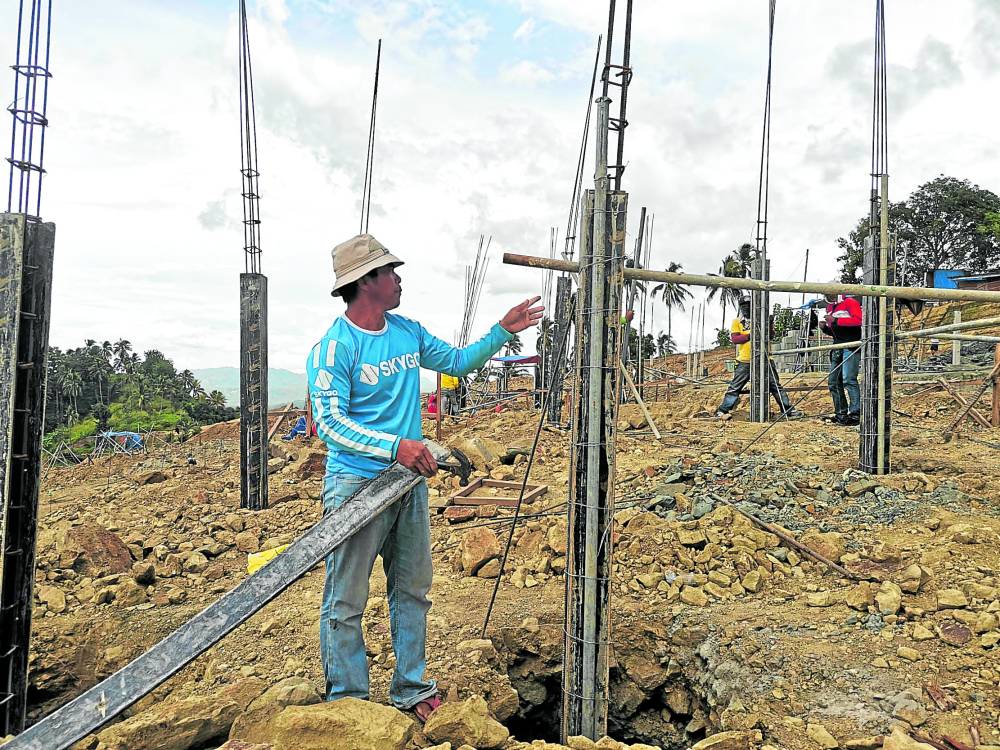Gov’t pledges 1 million homes every year

STARTING SOON Like this file photo of an old National Housing Authority project in Iligan City, construction of new housing will commence in three months. —DIVINA M. SUSON
The government will pursue its ambitious commitment to build 1 million homes annually over the next six years, Housing Secretary Jose Rizalino Acuzar said at a press conference on Thursday.
And it can be done, Acuzar told skeptical journalists at the Department of Human Settlements and Urban Development (DHSUD) in Quezon City.
Acuzar, a veteran home builder and property developer, admitted that the government’s Pambansang Pabahay para sa Pilipino is indeed ambitious.
“You’re right, we are being ambitious, but mga bossing (my bosses), when will we start fulfilling our dreams? When we’re dead?” said the 67-year-old secretary, who himself built a billion-peso company from scratch.
“While there’s time and our President Bongbong Marcos Jr.—who is willing to help provide housing to Filipinos—is there, it is our opportunity,” he said during the closing ceremony of the National Shelter Month.
Article continues after this advertisementAcuzar related that the President himself has met with top banks about the government’s housing program, “but he always asks me: ‘Secretary, can we really build 1 million houses?’”
Article continues after this advertisementStarting in 3 months
He said he assured Mr. Marcos that it can be done and the DHSUD and its agencies, such as the Home Development Mutual Fund (Pag-Ibig Fund), will in fact start construction in January.
Minimum wage earners and informal workers like fishball vendors can afford to have their own houses through the program, he said.
“This program is for all Filipino wage earners because the housing price fits their monthly income,” Acuzar added.
He said the monthly payment of those who will avail of the housing program would amount to only P3,000 to P5,000, which is around the estimated monthly cost of renting private properties.
“As soon as they get their house, they need to pay because for every unpaid house, 10 Filipinos would not be able to get their own shelters,” he said.
Through the Pag-Ibig Fund, informal workers may also avail of the socialized housing program, according to Pag-Ibig CEO Marilene Acosta.
Acosta reiterated that funds must be collected from the borrowers because the money being used in the housing program is sourced from the savings of the members.
Revolving funds
“Of the almost 15 million Pag-Ibig members, only 1.5 million avail themselves of the loan services,” she said, adding that the savings of the remaining 90 percent fund the housing loan program of the government.
On Wednesday night, Mr. Marcos held a meeting with officials from various financial institutions following the World Bank’s turnover of the Framework for Resilient Housing and Shelter Programs in the Philippines that will be used to guide the housing development projects of the government.
During the Senate budget hearing last week, Acuzar said the housing backlog may hit 11 million units by 2028 if the government would not be able to fund the socialized housing program.
Acuzar pointed out that of the proposed P96-billion funding for the DHSUD and other shelter agencies, the Department of Budget and Management allotted only P3.9 billion for the housing sector in the 2023 budget—almost a 50-percent cut from the current budget of P7.6 billion.
“When we talk about housing, what we need is money. That’s the major factor in [our planning] for housing,” he said.
“If we do business as usual, the 6.5 million housing need will balloon to almost 10.9 million by 2028. What we need is a new radical approach in dealing with this situation,” Acuzar added. INQ
READ: DHSUD chief signs agreement with Bacolod LGU to build 10K housing units